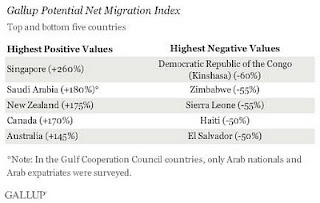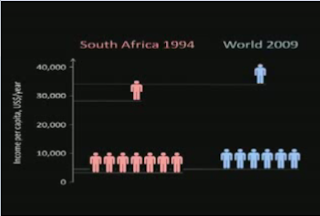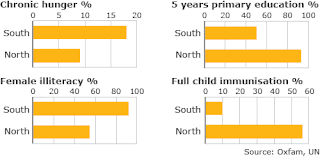A friend is supporting a local primary school here in Juba. Many of the kids come from IDP families, and the teachers have been working without pay for years. She recently managed to persuade Borders USA to donate some books to create a school library, which were handed over at the end-of-year ceremonies. How about that for good corporate publicity!
Donations are welcome, but transport is also a constraint. There are already piles of donated stuff in New York and London waiting to be brought to Juba - if anyone is heading over with spare luggage space any help is welcome!







